Table of Contents
- Introduction to the Portable Digital Pianos:
- What’s the Donner DP-10 Portable Electric Piano?
In today's music world, portable electronic keyboards have become the first choice for many musicians and learners. This blog will take an in-depth look at two popular electronic keyboards, represented by the 61-key and 88-key models: the Donner DP-10 and the Donner DEK-610S. We'll compare the benefits, features, and scenarios of these two models, with the aim of helping music lovers choose the best portable electronic keyboard for their needs.
Introduction to the Portable Digital Pianos:
The popularity of portable digital pianos has surged in recent years, revolutionizing the way musicians, learners, and enthusiasts engage with music. These instruments combine the convenience of modern technology with the timeless charm of piano playing, creating a trend that resonates across various demographics.
Accessibility and Convenience:
Portable digital pianos have democratized access to the piano-playing experience. Their compact design and lightweight nature make them easily transportable, allowing musicians to practice and perform virtually anywhere. Whether it's in a small apartment, a classroom, or an outdoor venue, these pianos cater to a range of spatial limitations and preferences.
Learning and Education:
For aspiring pianists, portable digital pianos offer a valuable tool for learning and skill development. Many models incorporate interactive features such as built-in lessons, metronomes, and recording capabilities, enabling learners to track their progress and refine their technique. The integration of educational software further enhances the learning experience, making piano instruction more engaging and accessible.
Musical Creativity and Experimentation:
Portable digital pianos are not confined to emulating traditional pianos. They boast an array of tones and effects that extend beyond the piano's sound, encouraging musicians to explore diverse musical genres and experiment with various sounds. This versatility fosters creativity, enabling artists to craft unique compositions and arrangements.
Performance Flexibility:
Musicians ranging from hobbyists to professionals value the adaptability of portable digital pianos for live performances. Their ability to connect to external sound systems, MIDI devices, and recording equipment empowers artists to tailor their sound for different venues and settings. This adaptability extends to various music styles, making them versatile companions for solo acts and ensembles alike.
Digital Integration:
In the age of technology, portable digital pianos seamlessly integrate with digital workflows. USB connectivity, MIDI compatibility, and wireless features enable musicians to connect to recording software, music apps, and other digital resources. This integration bridges the gap between traditional piano playing and modern production techniques.

What’s the Donner DP-10 Portable Electric Piano?
- Best portable piano keyboard 88 keys
The Donner DP-10 Portable Electric Piano is a musical instrument designed for pianists and musicians who seek a versatile and compact piano-playing experience. This digital piano features an 88-key keyboard with a semi-weighted action, allowing players to achieve a balanced blend of portability and playability.
The Donner DP-10 Portable Electric Piano is tailored for those who value a combination of authentic piano feel, a variety of tones, and the convenience of a foldable and portable design. It caters to both learners and experienced players seeking a versatile instrument for practice, performance, and creative expression.
Advantages:
- Foldable Design: The Donner DP-10 boasts a foldable design that enhances its portability, making it easy to transport and store.
- Full-Size 88-Key Keyboard: With a full-size 88-key semi-weighted keyboard, the DP-10 offers a closer approximation to the feel of an acoustic piano, providing better playability for pianists.
- Rich Sound Selection: This digital piano provides a diverse range of tones and sound effects, enabling players to explore various musical genres and styles.
- Built-in Speakers: The integrated speakers deliver sound directly from the piano, allowing for convenient practice and performance without the need for external amplification.
- MIDI Connectivity: MIDI connectivity offers the ability to connect to external devices, opening up possibilities for music production and integration with software.
- Foldable Music Stand: The included foldable music stand provides a convenient place to put sheet music or learning materials during practice sessions.
Disadvantages:
- Semi-Weighted Keys: While the semi-weighted keys provide a compromise between portability and playability, they might not fully replicate the touch and feel of a traditional acoustic piano's keys.
- Limited Sound Depth: Compared to high-end digital pianos, the DP-10's sound quality and depth might be limited due to its compact and portable nature.
- Less Advanced Features: In comparison to more sophisticated digital pianos, the DP-10 might lack advanced features and functionalities that advanced pianists or music producers seek.
- Limited Sound Customization: The range of sound customization options might be narrower compared to more professional-grade digital pianos.
- External Amplification: For larger performances or venues, external amplification might be required to adequately project the sound of the piano.
Remember that these points are based on general observations and information available about the Eastar DP-10 digital piano. It's always advisable to read product reviews and conduct further research before making a purchase decision.

What’s the Donner DEK-610S Portable Piano Keyboard?
- Best portable piano keyboard 61 keys.
The Donner DEK-610S Portable Piano Keyboard is a versatile digital instrument designed for musicians seeking a compact and convenient solution for their piano-playing needs. This digital piano features a 61-key keyboard that strikes a balance between portability and playability, making it suitable for a range of musical applications.
The Donner DEK-610S Portable Piano Keyboard is designed to cater to both beginners and more experienced players who prioritize portability and a variety of tones. Its compact size, range of features, and connectivity options make it suitable for practice, music creation, and small-scale performances.
Advantages:
- Full-Size 61-Key Keyboard: The DEK-610S features a full-size 61-key non-weighted keyboard, providing a closer experience to the touch of a traditional piano.
- Diverse Tones and Effects: With up to 128 different tones and various sound effects, this electronic piano offers a wide range of sound options for musicians.
- Built-in Rhythms and Practice Features: Integrated rhythms and practice features assist learners in rhythm exercises and musical exploration.
- Low Noise Output: The built-in low noise output option allows for practice with headphones, preventing disturbance to others.
- USB and MIDI Connectivity: Equipped with USB and MIDI connectivity, it facilitates connections to computers and other music devices for recording and production.
- Audio Output Ports: The audio output ports enable connection to external speakers or audio systems, suitable for performances or larger venues.
Disadvantages:
- Non-Weighted Keyboard: The DEK-610S employs a non-weighted keyboard, which might not fully replicate the authentic touch of a traditional piano keyboard.
- Limited Sound Depth: In comparison to high-end digital pianos, the DEK-610S might have limitations in sound depth and quality due to its design.
- Relatively Basic Features: For more advanced piano players or music producers, the DEK-610S might lack some advanced features and functionalities.
- Limited Sound Customization: The range of options for sound customization might be narrower compared to more professional-grade digital pianos.
- Smaller Speakers: The built-in speakers might require external amplification for larger performances or venues to ensure optimal sound projection.
Compare whit Donner DP-10 and Donner DEK-610S:
|
Parameter |
Donner DEK-610S |
|
|
Number of Keys |
61 keys |
61 keys |
|
Keyboard Type |
Non-weighted |
Non-weighted |
|
Number of Polyphony |
32 |
81 |
|
Sound Effects |
No |
Yes |
|
Number of Voices |
128 |
249 |
|
Built-in Practice |
Yes |
Yes |
|
Low Noise Output |
Yes |
Yes |
|
MIDI Connectivity |
Yes |
Yes |
|
Output Ports |
USB, Headphone |
USB, Headphone, Audio Out |
|
Recording Function |
Available |
Available |
|
Weight |
4.9 kg (10.8 lbs) |
23.5 pounds |
|
Dimensions |
49.6 x 7.8 x 2.4 inches |
38.58 x 14.96 x 11.42 inches |
|
Portability |
High |
Moderate |
|
Usage Scenarios |
Learning, Practice, Mobility |
Practice, Home Use, Performance,Gift |
When comparing 61-key and 88-key portable digital pianos like the Donner DEK-610S and the Donner DP-10, it's important to consider their distinct characteristics and suitable applications.
Different characteristics and usage scenarios of the two:
61-Key Portable Digital Piano (Donner DEK-610S):
Suitable Scenarios:
- Well-suited for more experienced players and intermediate-level pianists.
- Offers enhanced versatility for both learning and performances.
- A choice for music enthusiasts aiming for a compact and manageable size.
Characteristics:
- Full-size 61-key keyboard, providing ample range for various musical pieces.
- Offers a variety of tones, sound effects, and practice functionalities.
- Suitable for learners aiming for a portable piano experience.
- Provides USB, MIDI connectivity, and potential for music production.
- 61-key electronic keyboard piano with stand stool headphones & microphone.
88-Key Portable Digital Piano (Donner DP-10):
Suitable Scenarios:
- Ideal for learners and casual players seeking a portable option.
- Suited for musicians on the go, with a foldable design for easy transport.
- Versatile for light performances and practice sessions.
Characteristics:
- Full-size 88-key keyboard for a comfortable playing experience.
- Offers a variety of tones and built-in practice features.
- Convenient for learners and hobbyists looking for mobility and simplicity.
- Limited in replicating the authentic touch of a traditional piano due to non-weighted keys.
Summary:
In summary, the Donner DEK-610S, as a 61-key portable digital piano, is well-suited for experienced players seeking a compact and versatile instrument. On the other hand, the Donner DP-10, with 88 keys, is ideal for learners and casual players who prioritize portability and versatility. It's important for musicians to assess their individual needs before choosing between these two types of digital pianos.
For beginners, choosing between a 61-key and an 88-key digital piano requires considering their learning goals, budget, and personal preferences. Here are some suggestions to help beginners make a more informed decision:
Choosing a 61-Key Digital Piano:
- Budget Constraints: 61-key digital pianos are generally more affordable than their 88-key counterparts, making them suitable for budget-conscious beginners.
- Space Limitations: If you're living in a space-limited environment like an apartment or dormitory, a 61-key digital piano is easier to accommodate and store.
- Portability Priority: If you need to practice or perform in different locations, a 61-key digital piano's lightweight and compact design makes it convenient for mobility.
- Basic Learning: Beginners usually start by mastering fundamental skills, and a 61-key digital piano is sufficient to support these initial learning stages.
Choosing an 88-Key Digital Piano:
- Desire for Wider Range: An 88-key digital piano offers a broader range of tones and closely resembles the keyboard range of a real piano, suitable for more in-depth learning and performances.
- Replicating Real Piano Feel: Some 88-key digital pianos feature weighted key actions, providing a more accurate simulation of the authentic piano key touch, which is valuable for building playing skills.
- Long-Term Investment: If you're planning for long-term learning and continuous skill improvement, an 88-key digital piano better caters to your needs and prevents the need for future upgrades.
- More Tones and Features: Typically, 88-key digital pianos provide more tone options, sound effects, and functional features, offering more possibilities for music creation and exploration.
The choice between a 61-key and an 88-key digital piano hinges on your goals, budget, and space requirements. If you're a beginner, have budget constraints, or prioritize portability, a 61-key digital piano is a solid choice. If you aspire for a broader tonal range, more authentic touch, and greater versatility, an 88-key digital piano might be more suitable. Ultimately, making the decision based on your needs and circumstances is crucial.

FAQ
- Q: What is a portable digital piano?
- A: A portable digital piano is a compact, lightweight, and easily transportable digital instrument that allows musicians to practice and perform in various settings.
- Q: What is the difference between 61 keys and 88 keys?
- A: A 61-key digital piano has a smaller keyboard range, suitable for basic practice and light playing. An 88-key digital piano features a standard piano keyboard, offering a broader range of tones and a more authentic piano feel.
- Q: What is a weighted keyboard?
- A: A weighted keyboard simulates the feel of a traditional piano keyboard, requiring greater force when pressing the keys, resulting in a touch closer to that of a real piano.
- Q: Which people are these two pianos suitable for?
- A: The Donner DEK-610S is suitable for beginners and players who require a wider range of keys, while the Donner DP-10 is designed for experienced musicians seeking a more compact design and a greater variety of sound options.
- Q: How do the tones and effects differ between 61-key and 88-key digital pianos?
- A: 88-key digital pianos typically offer more tone and effect options due to their larger keyboard, allowing for more variations in sound. However, this doesn't imply that all 88-key pianos are superior, as sound quality can also be influenced by other factors.
- Q: Is it necessary to buy a digital piano with weighted keys?
- A: It's not necessary; this depends on your skill level and musical needs. Weighted keys offer a more authentic piano feel and are suitable for more professional players. However, non-weighted keys are also a good choice for beginners and casual players.
- Q: How do I choose the right portable digital piano for me?
- A: Consider your skill level, budget, musical requirements, and mobility needs. Comparing specifications, features, and user reviews can help you make an informed decision.


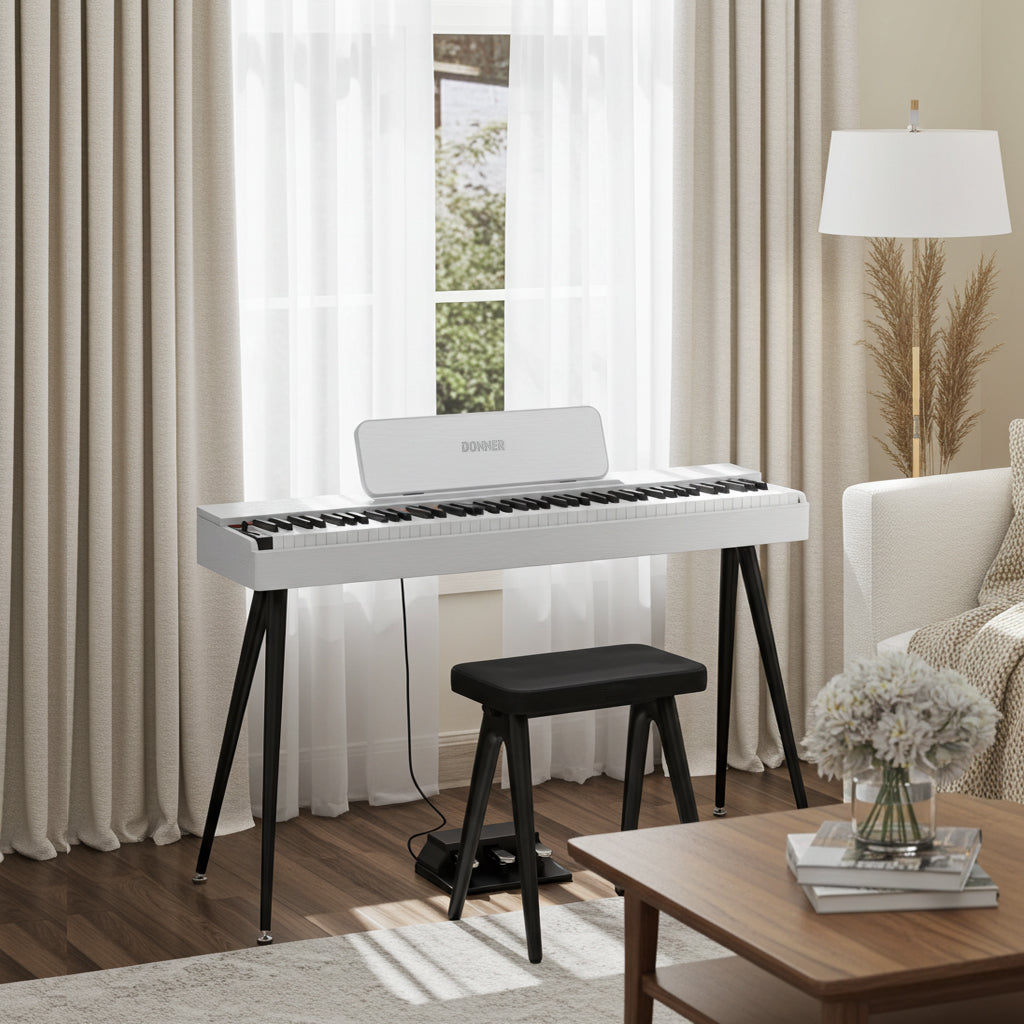
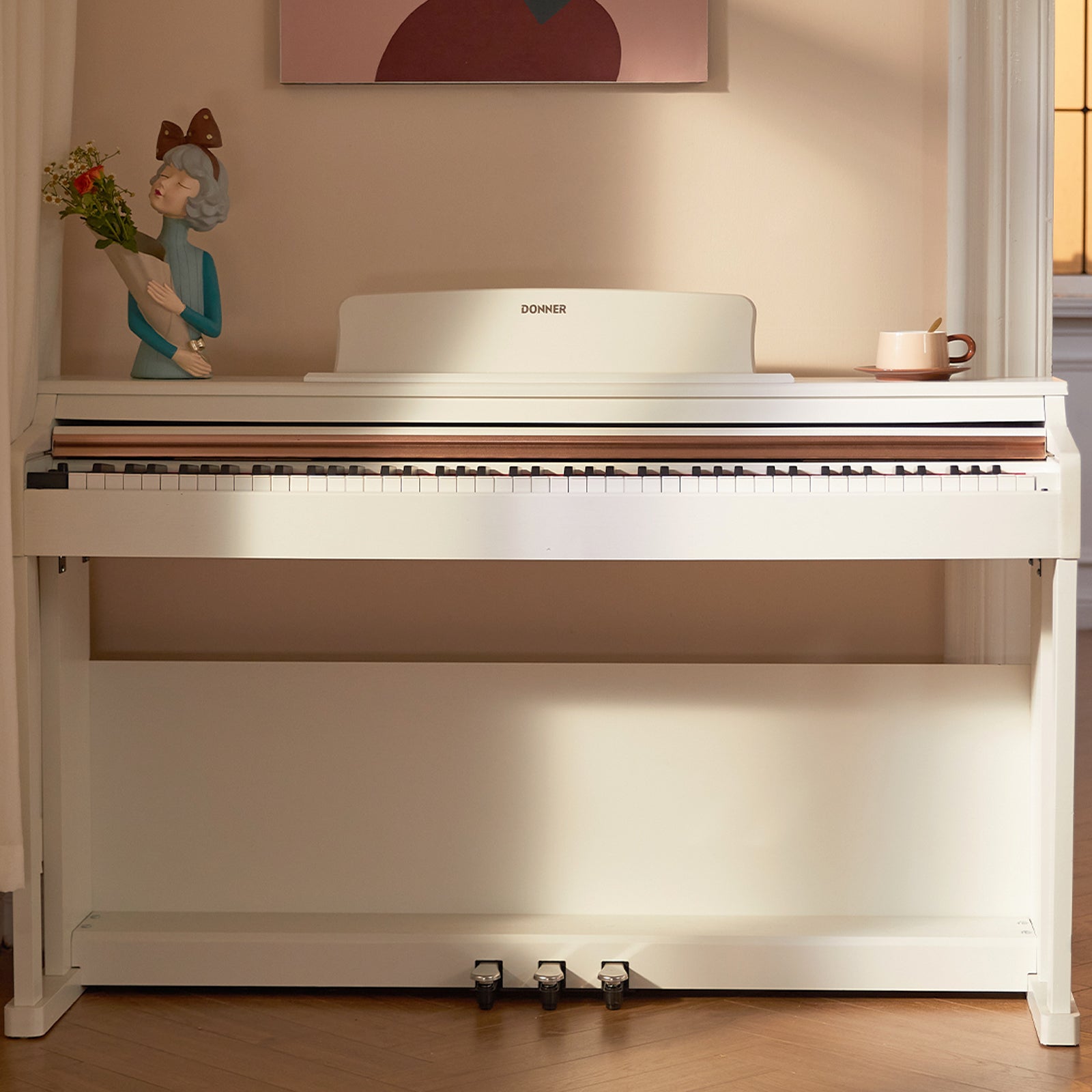
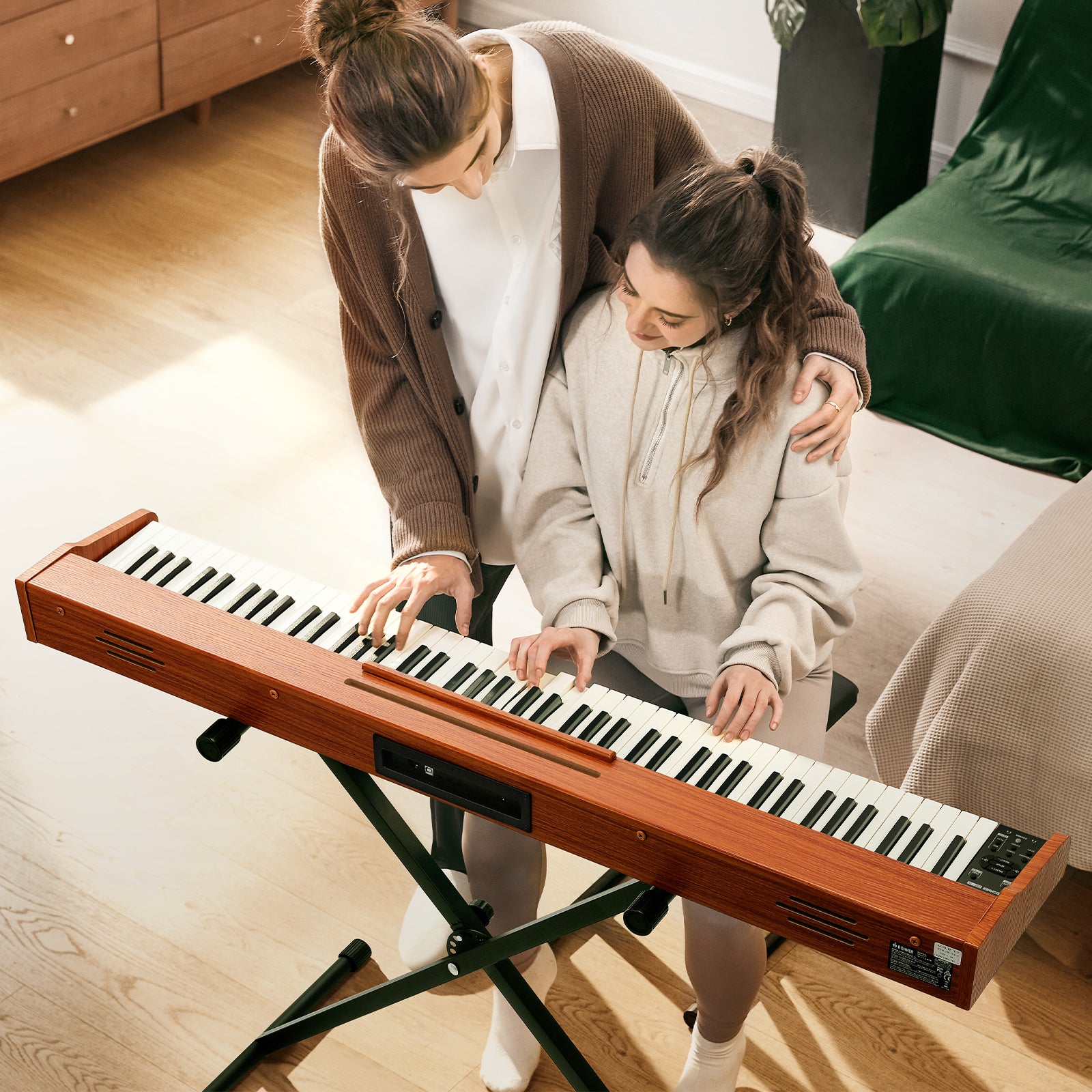
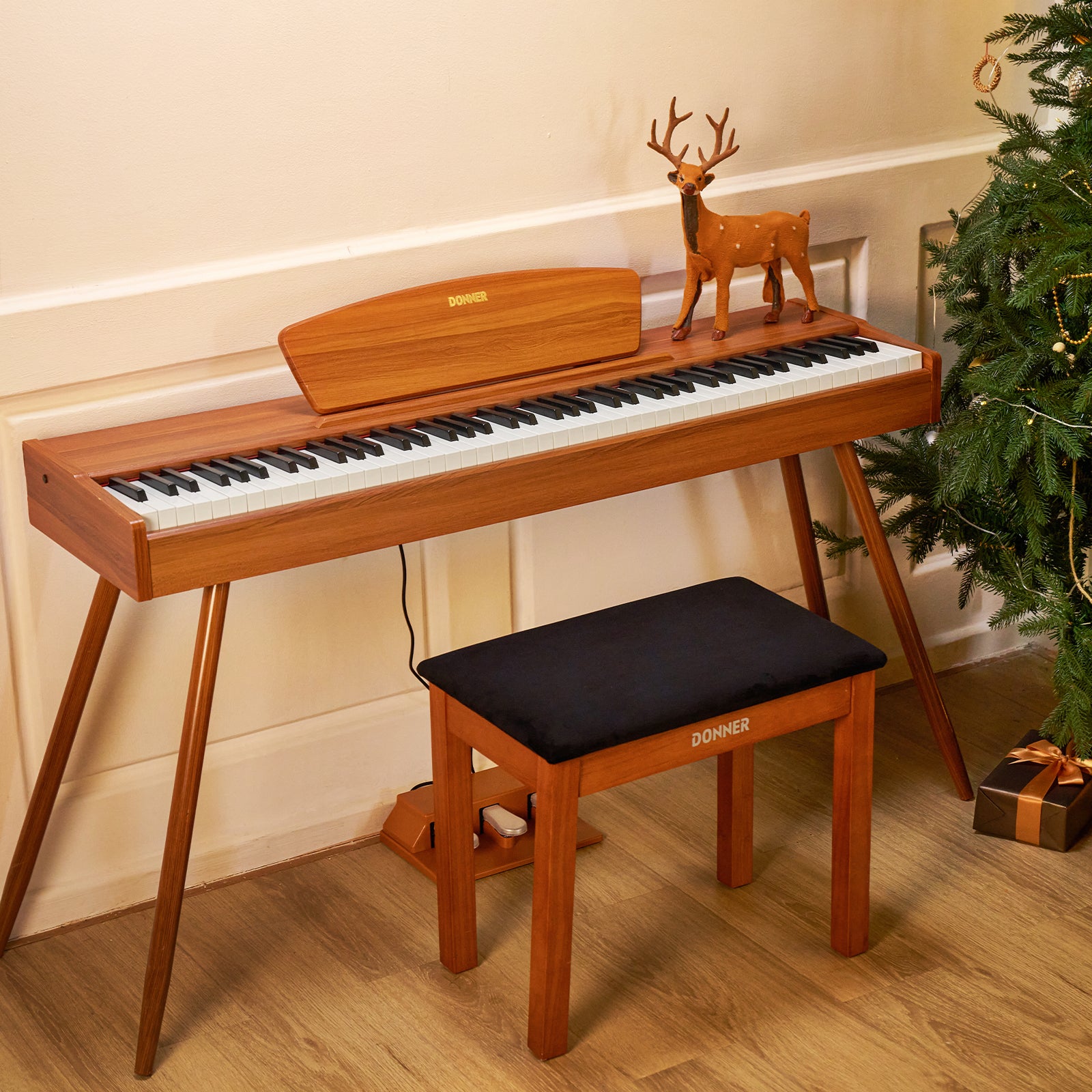
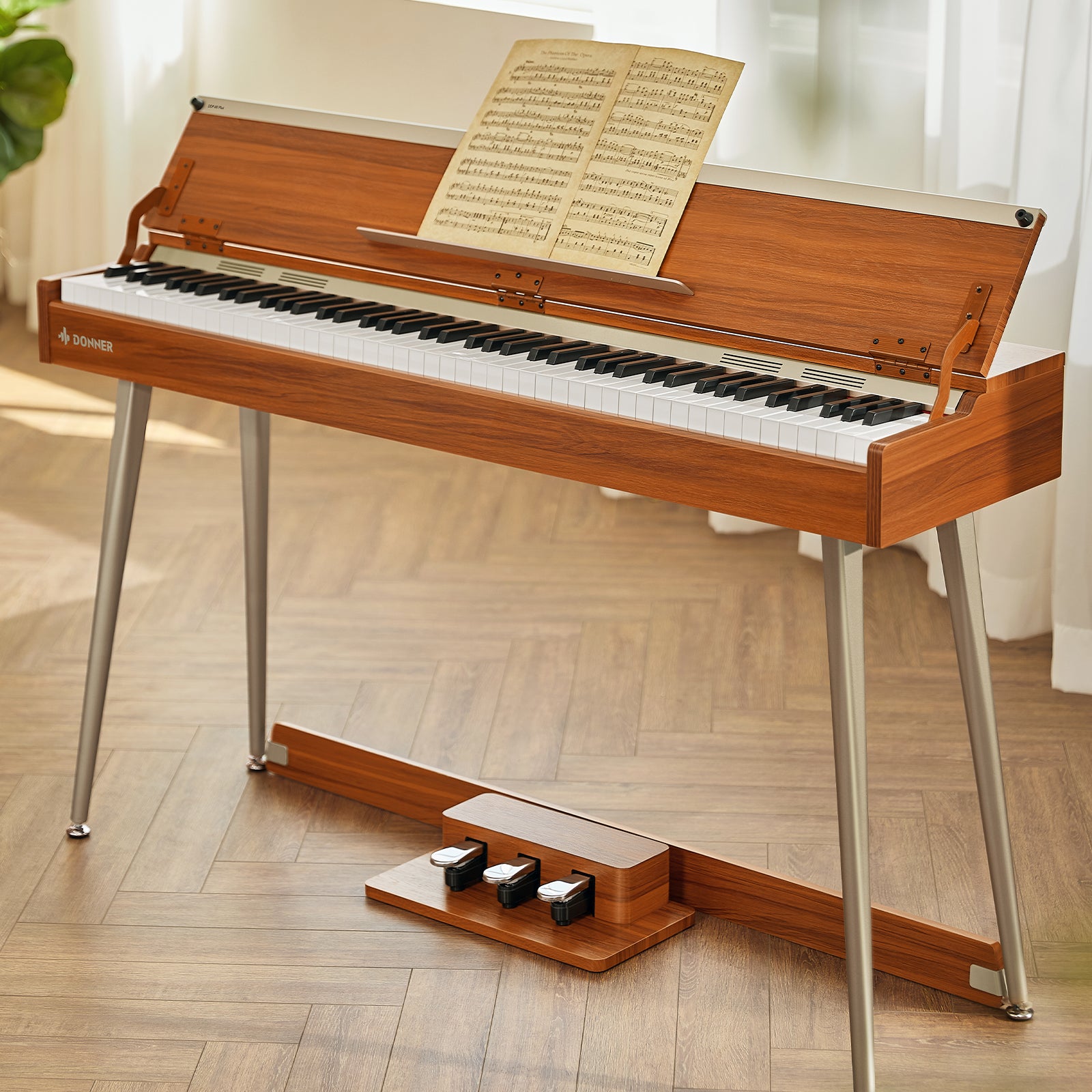
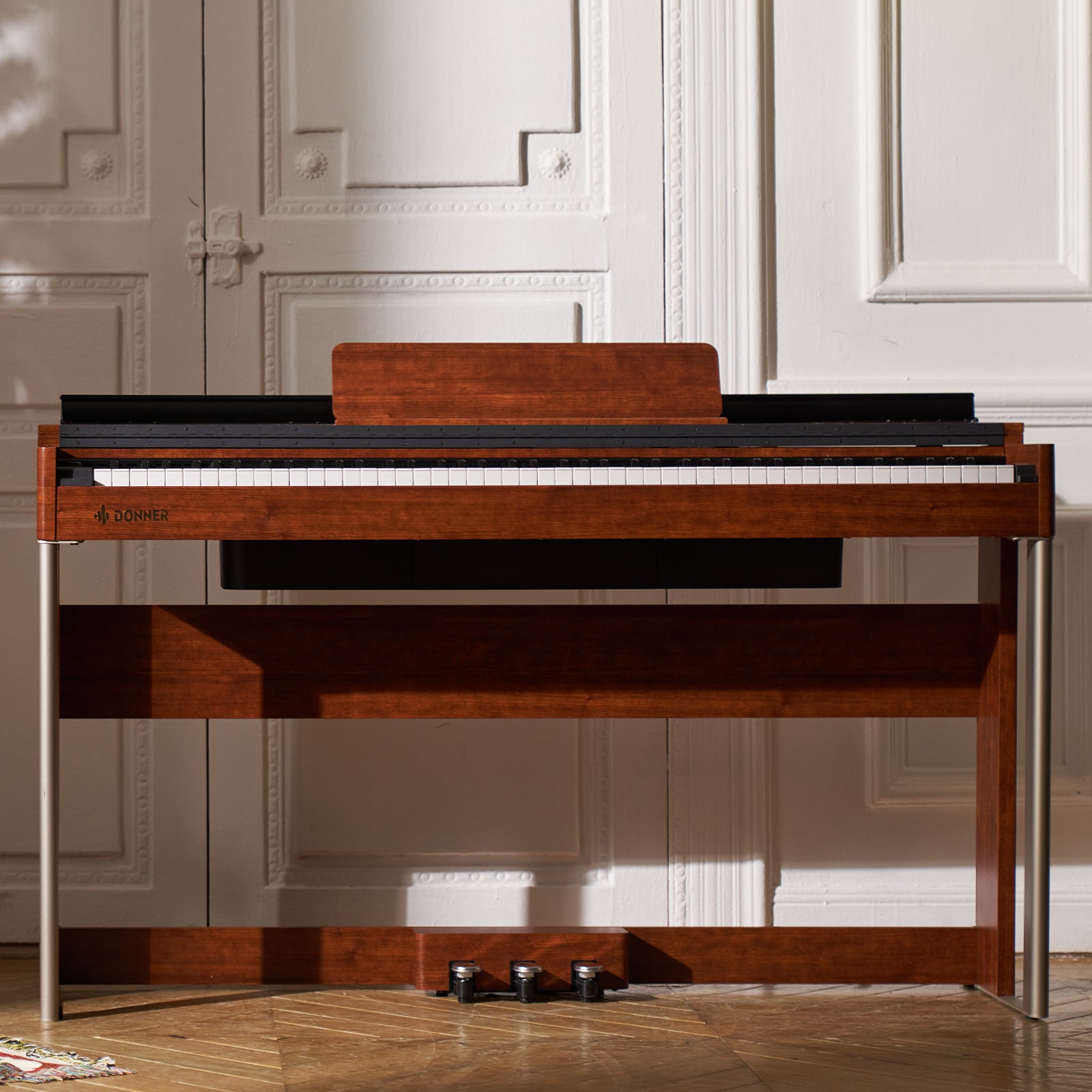
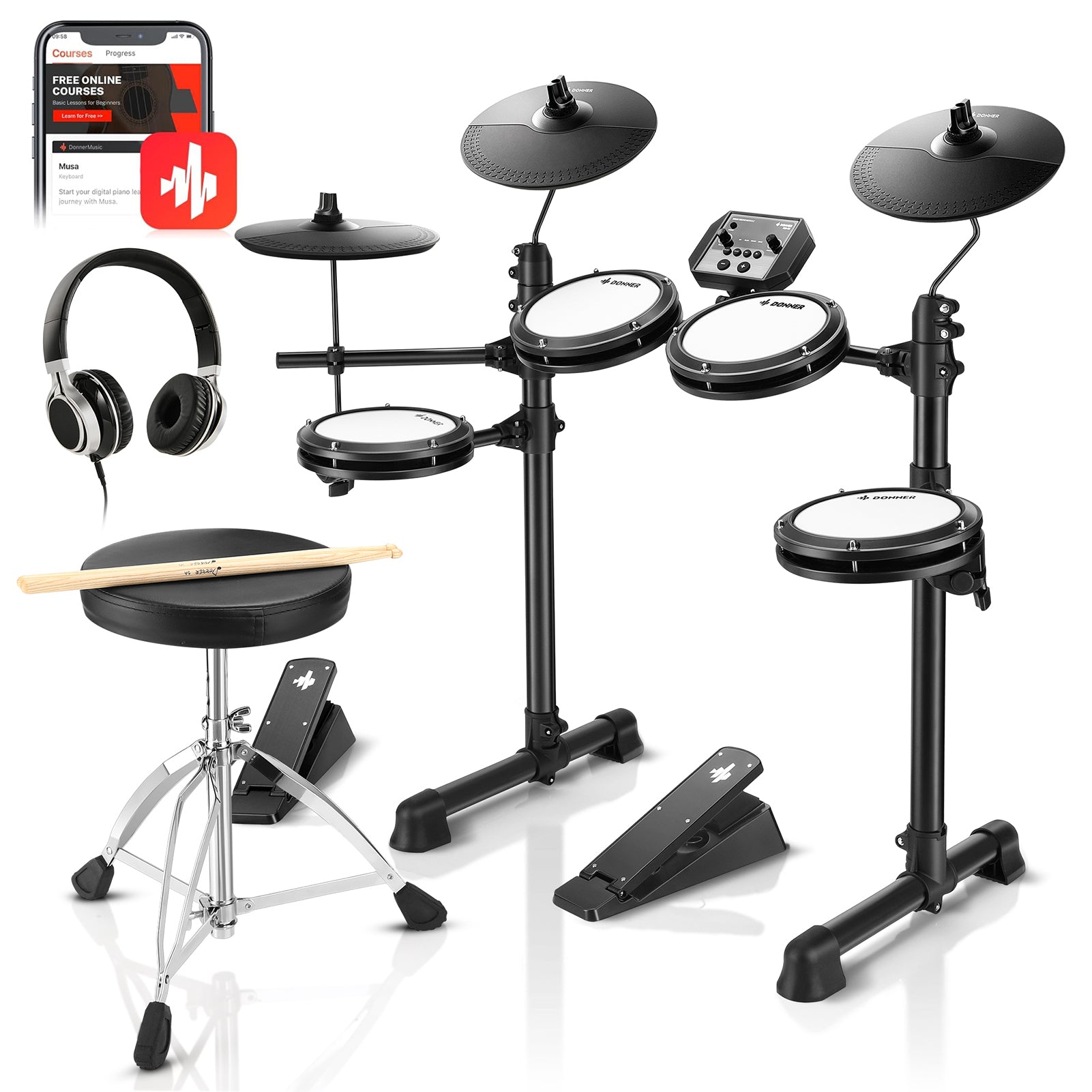
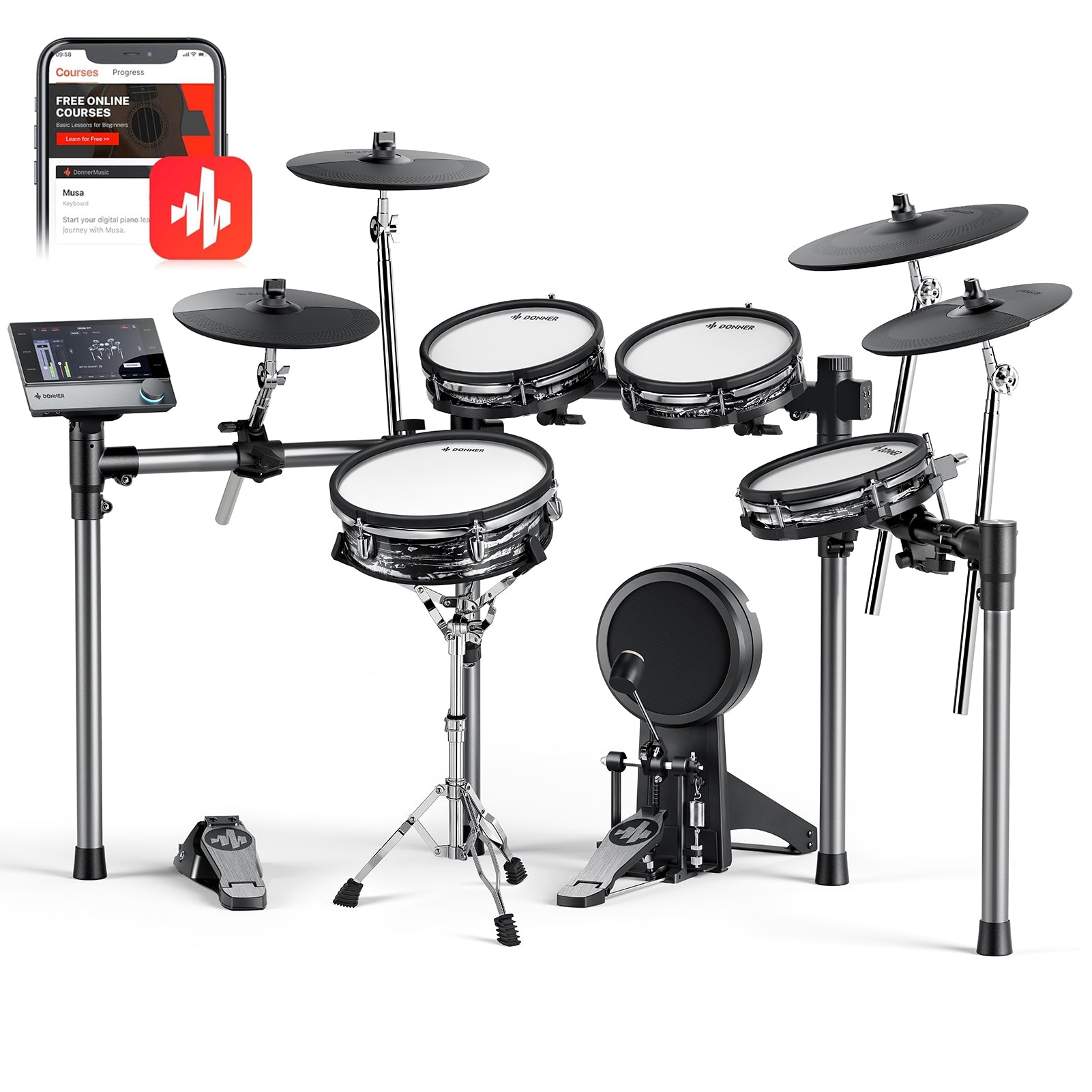
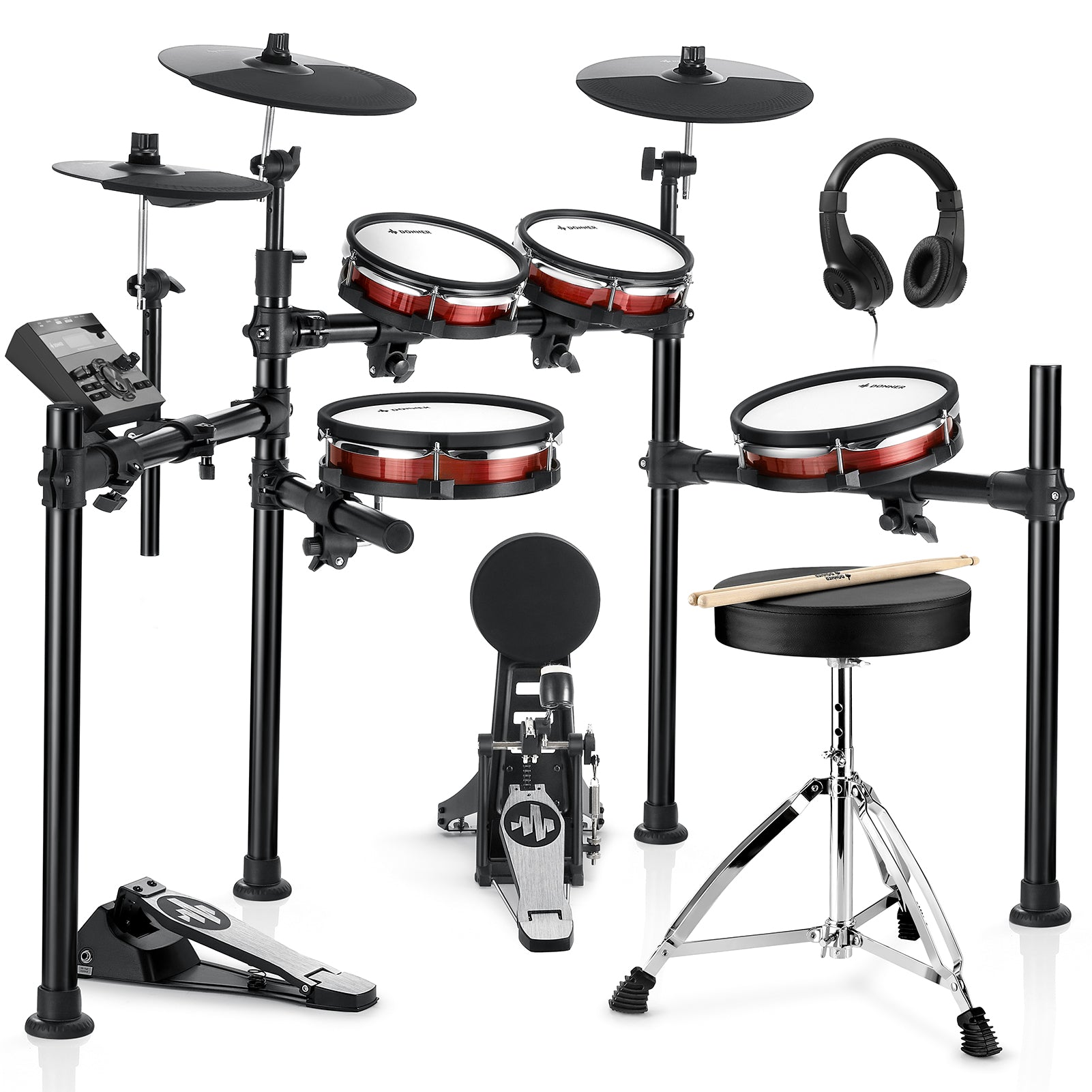
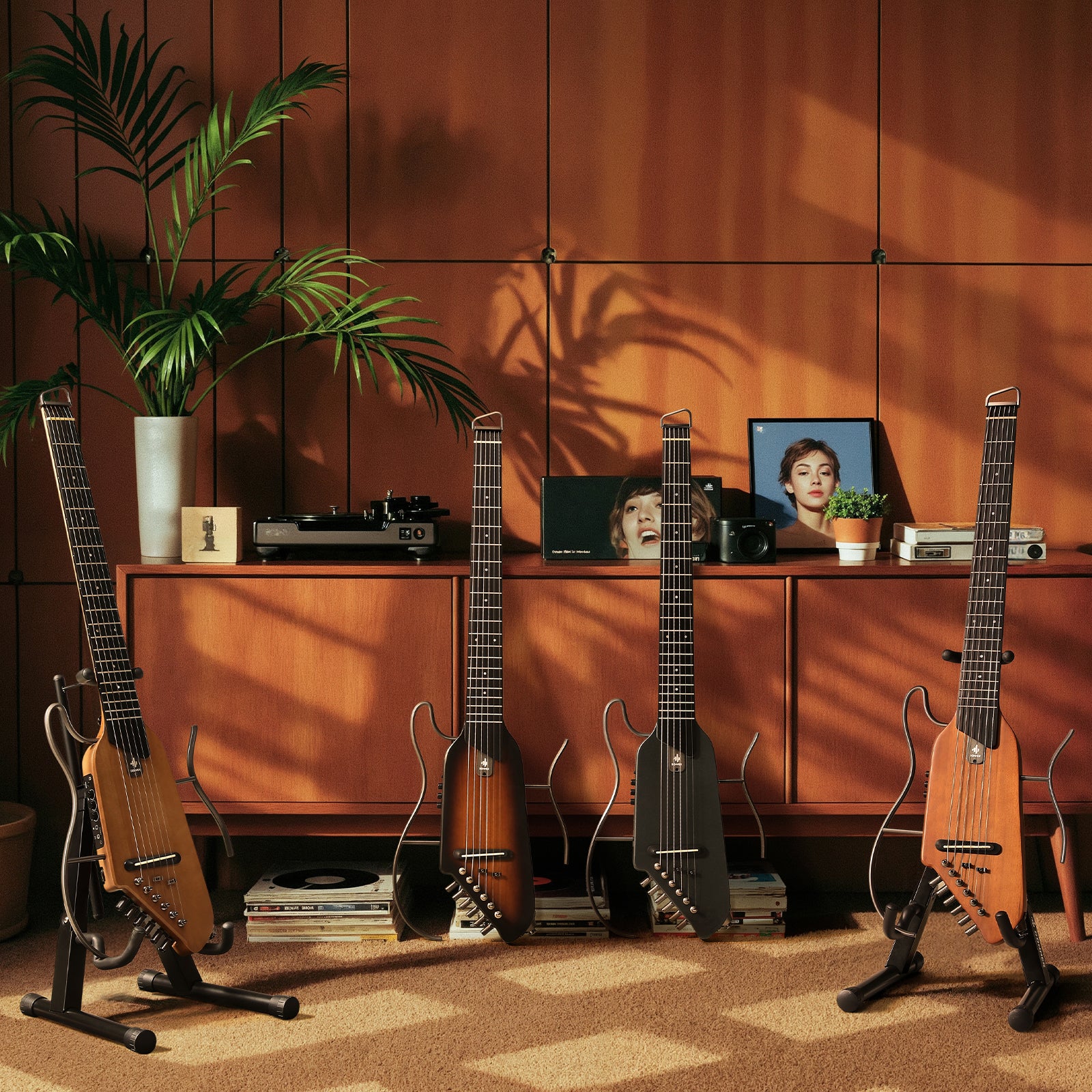

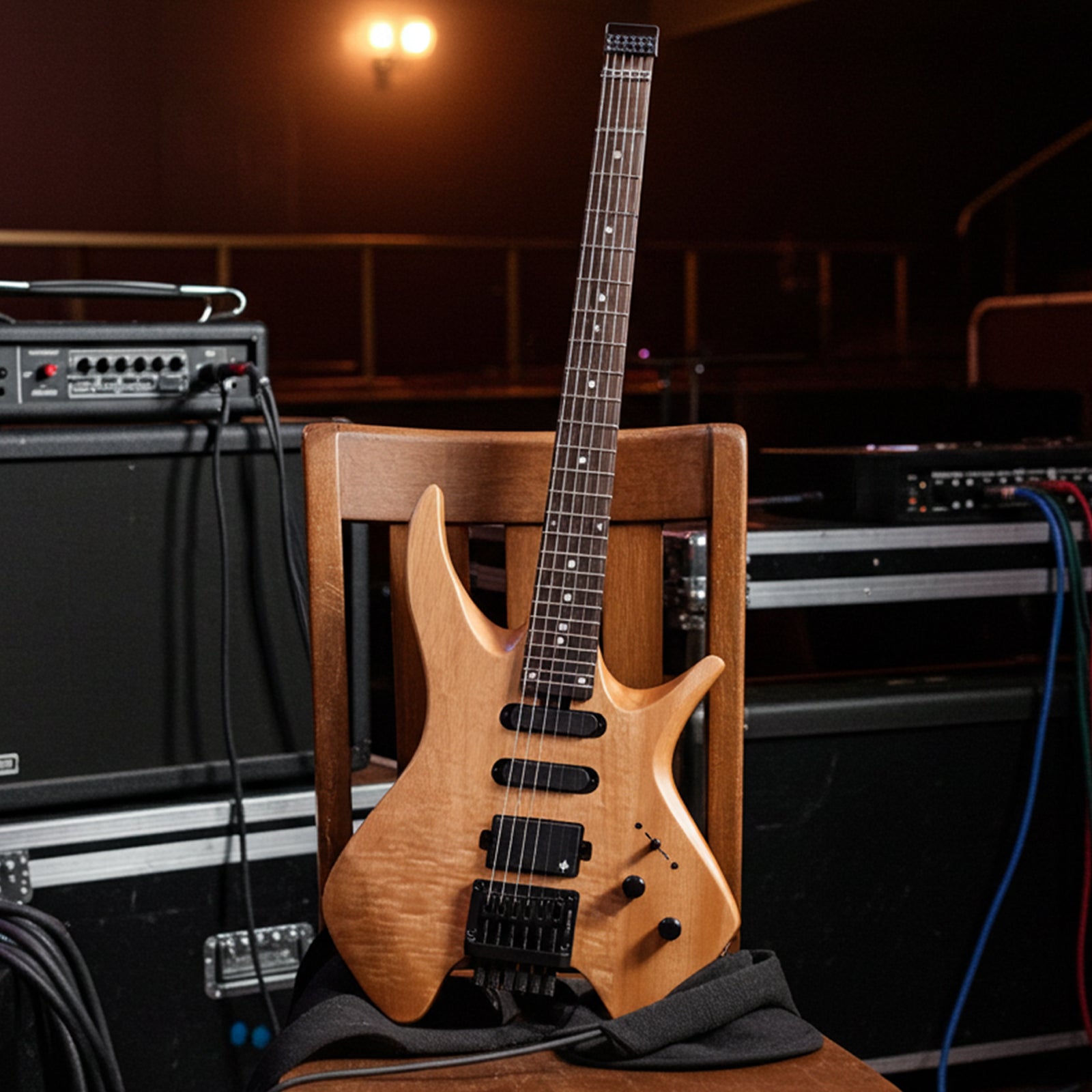
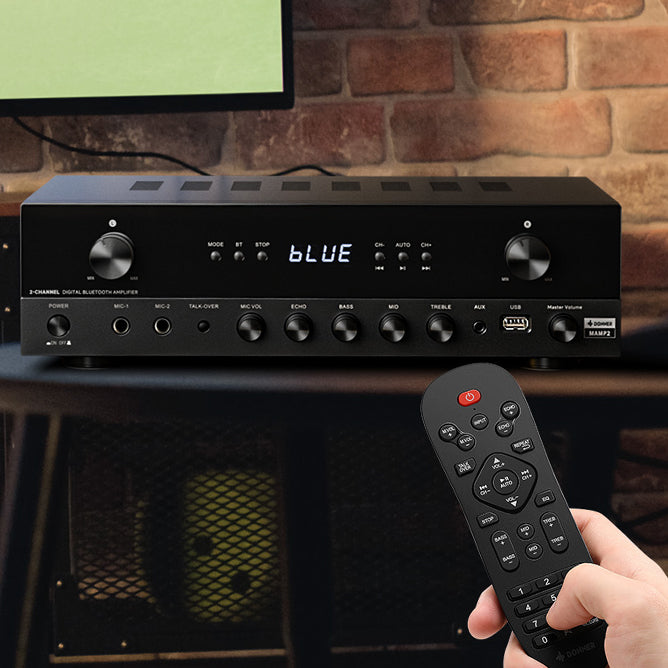
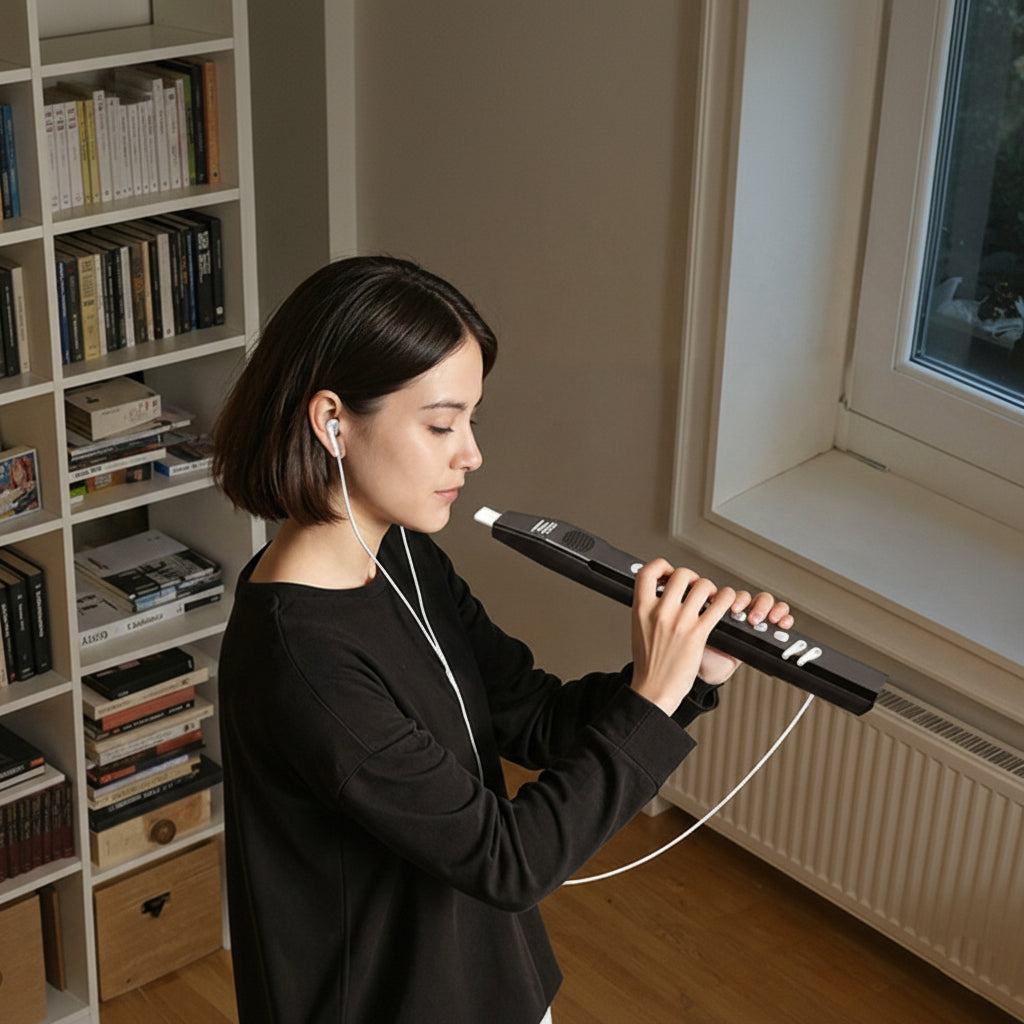


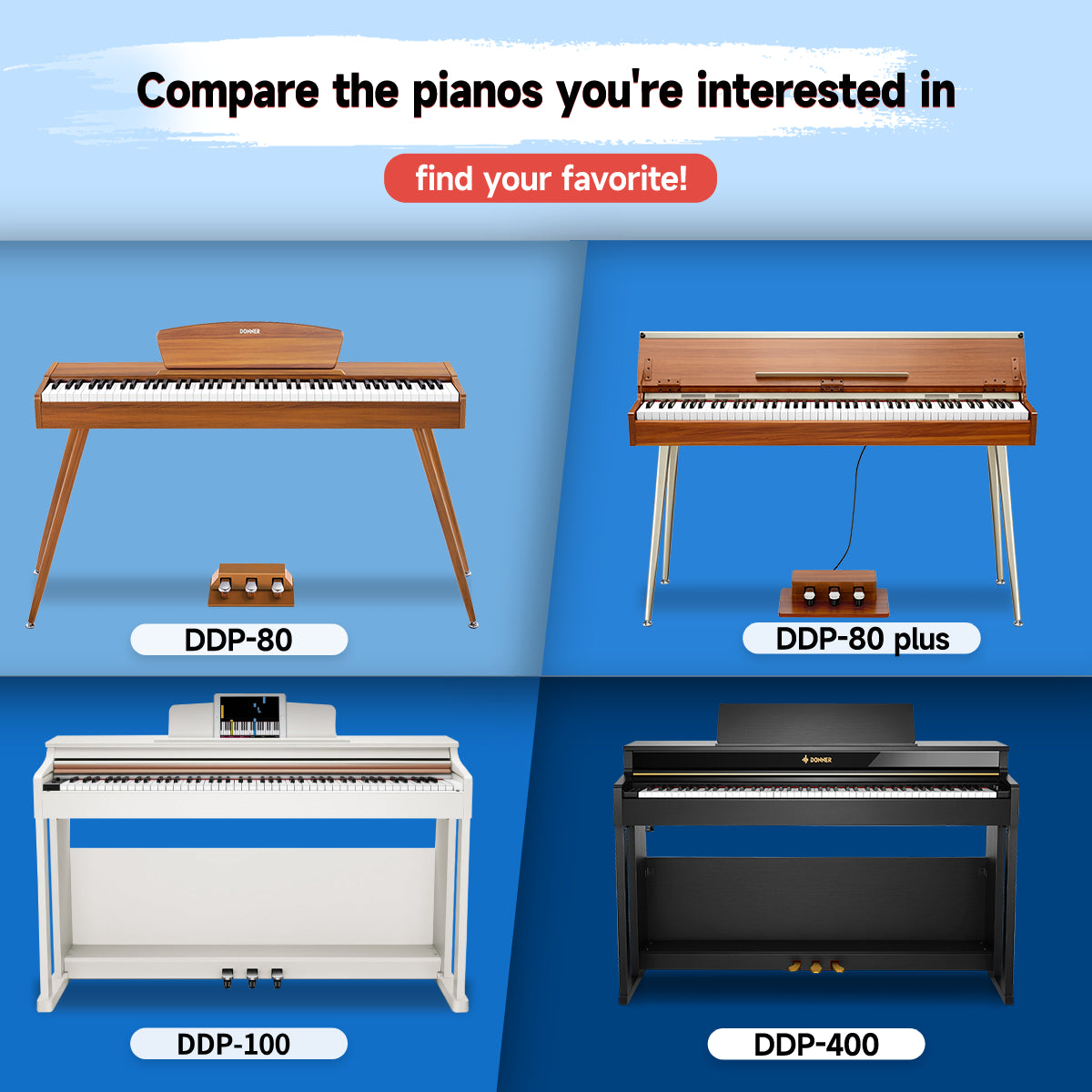
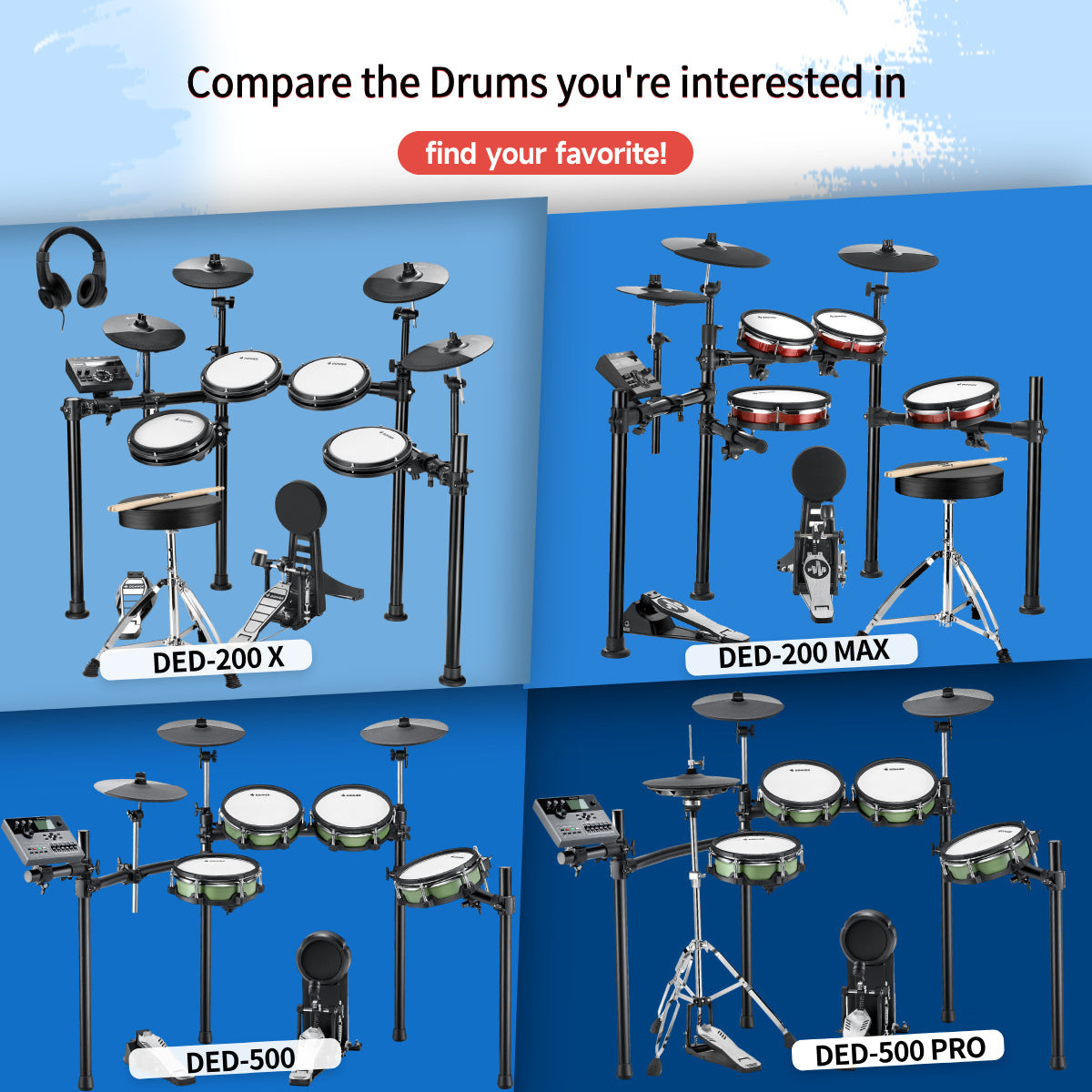
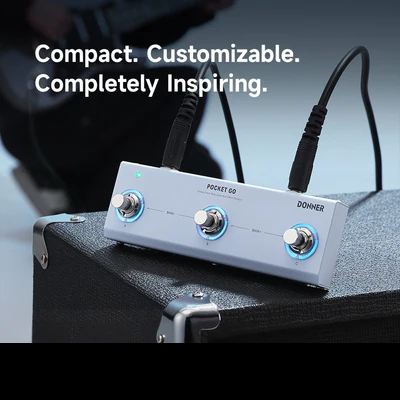
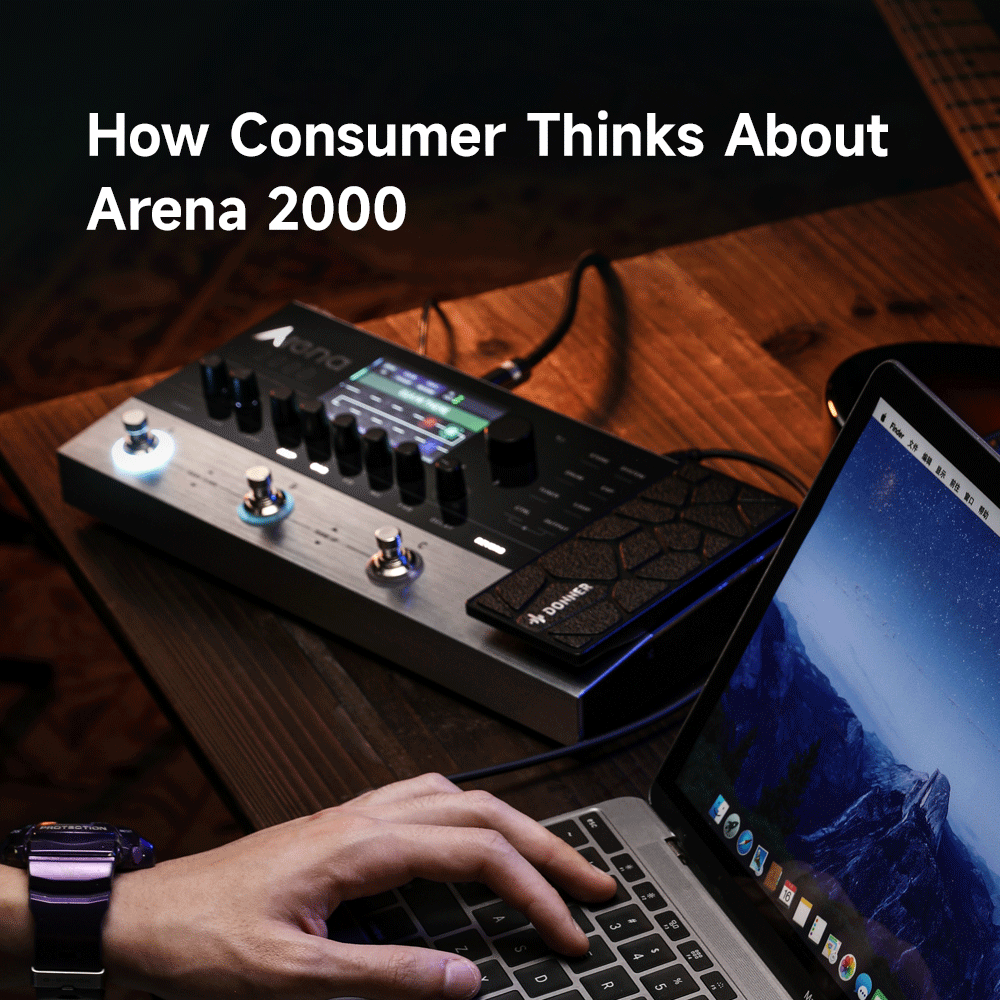
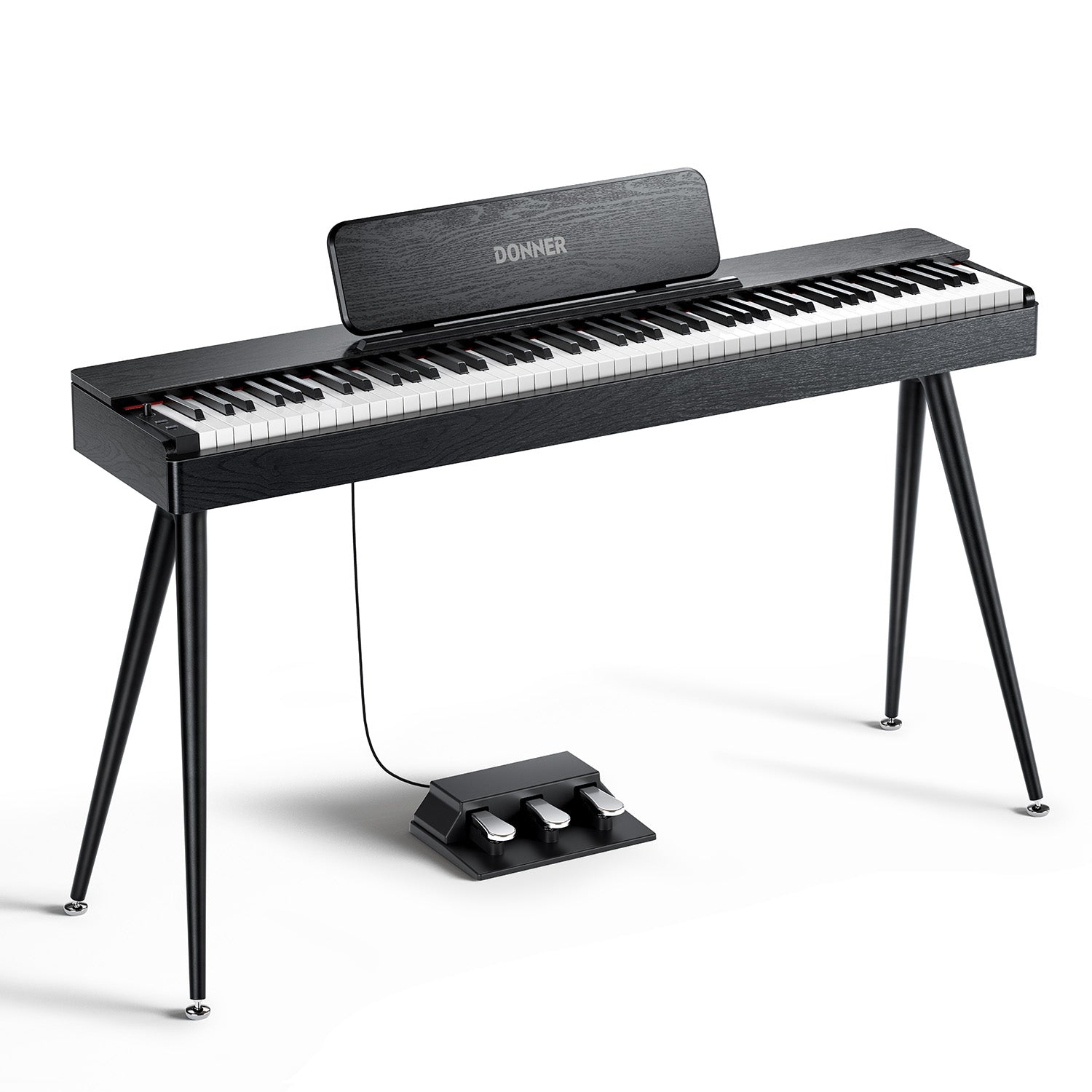
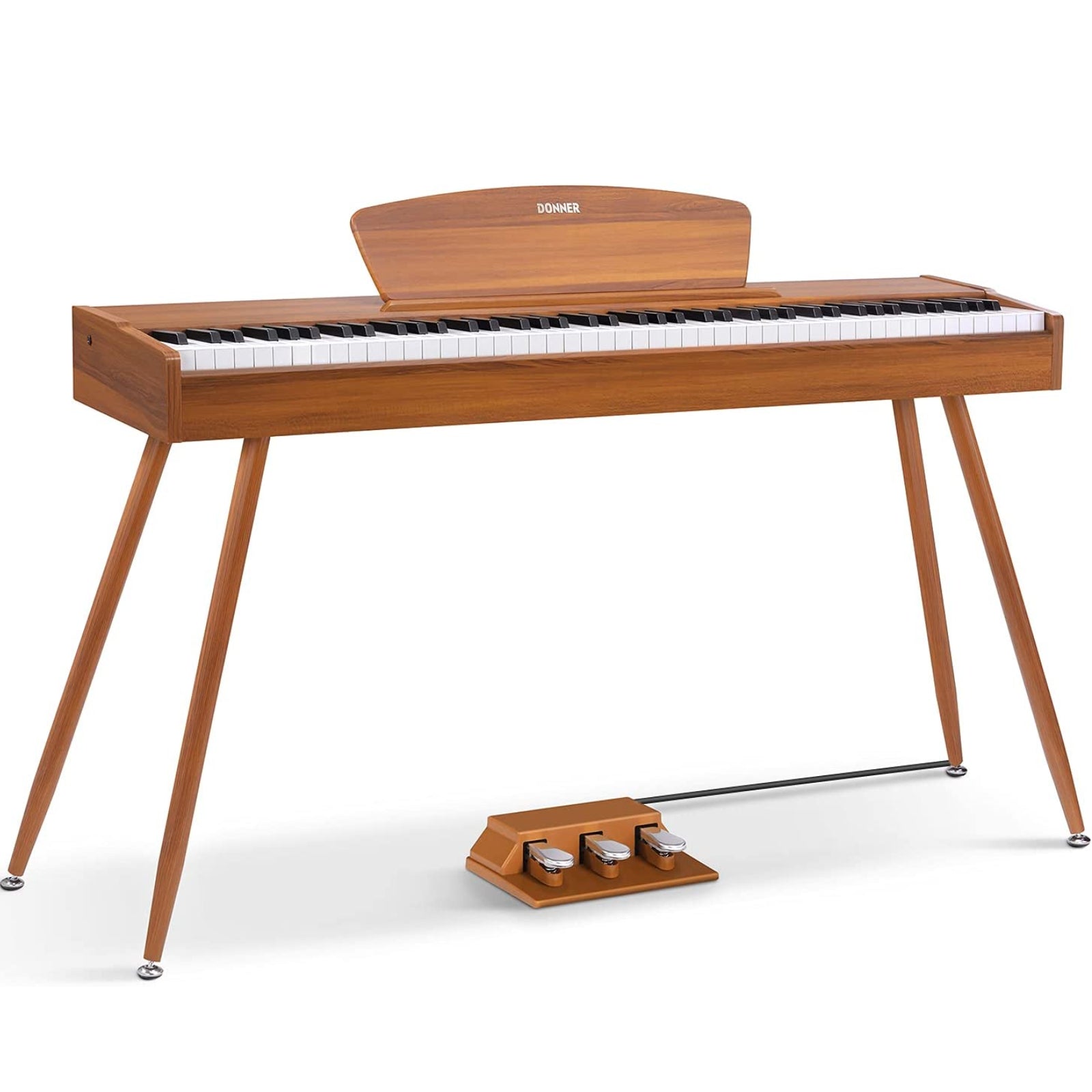


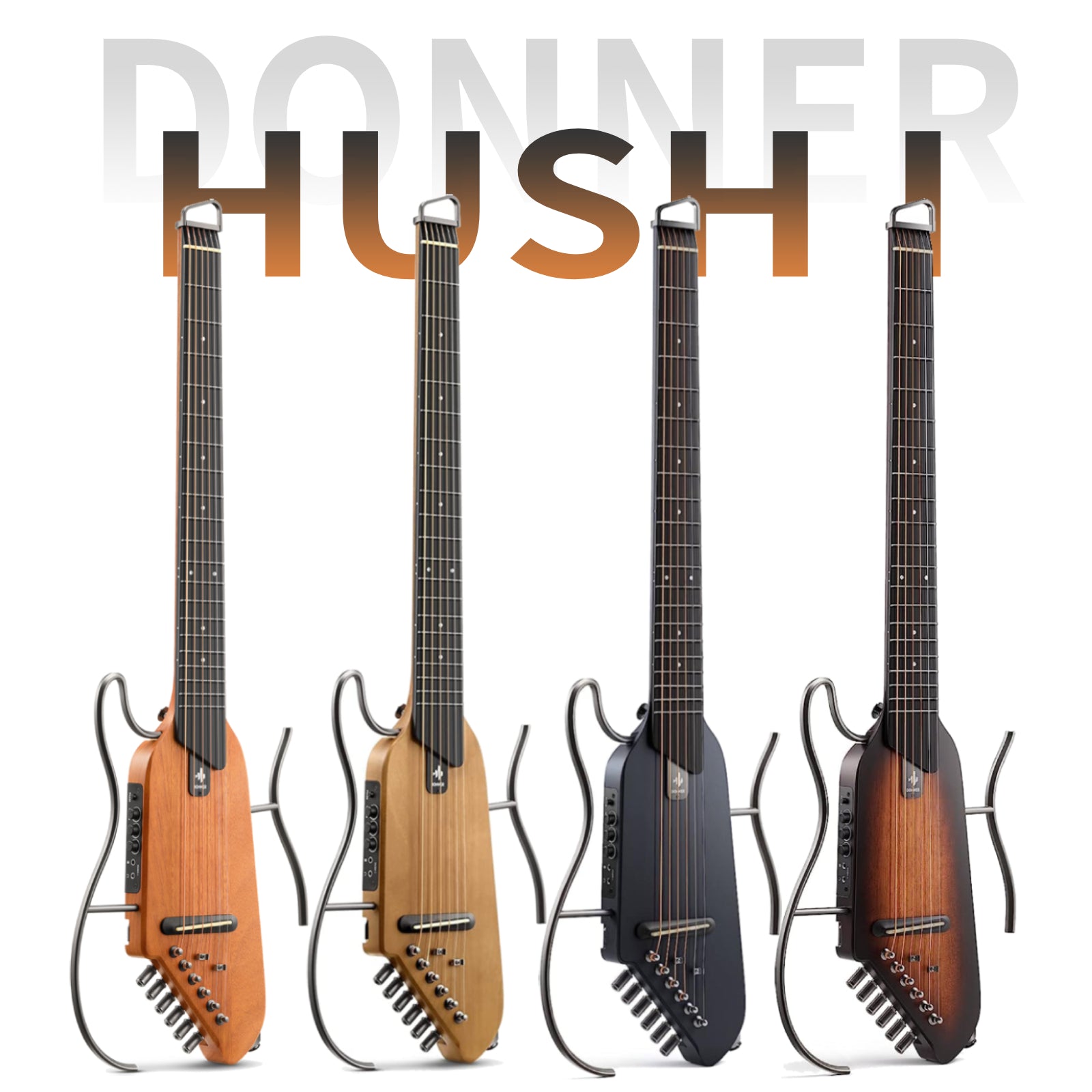
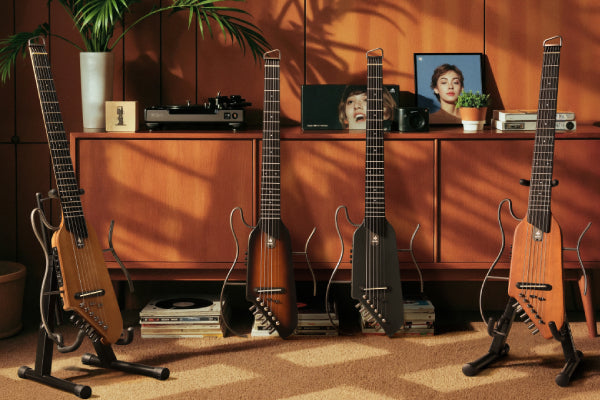
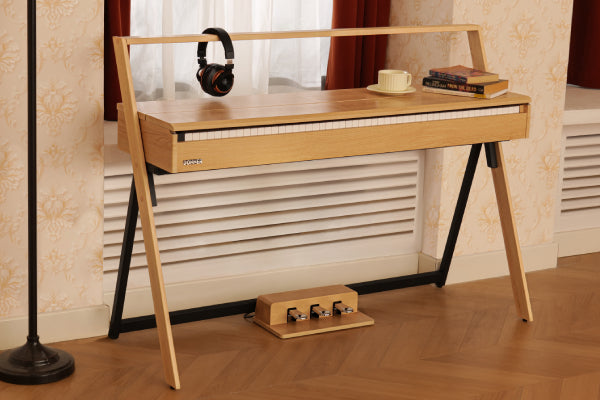
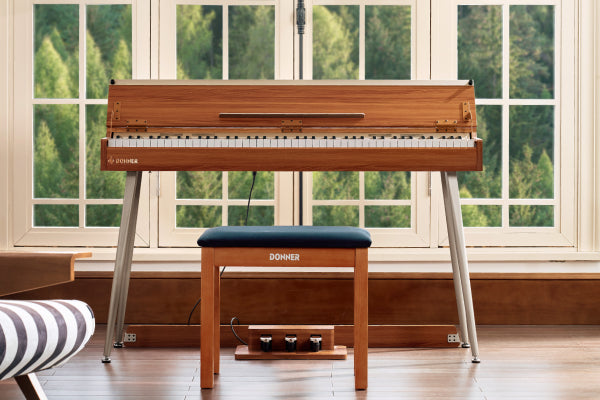
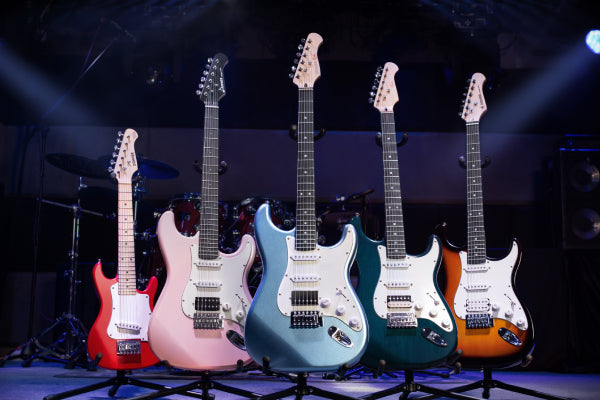
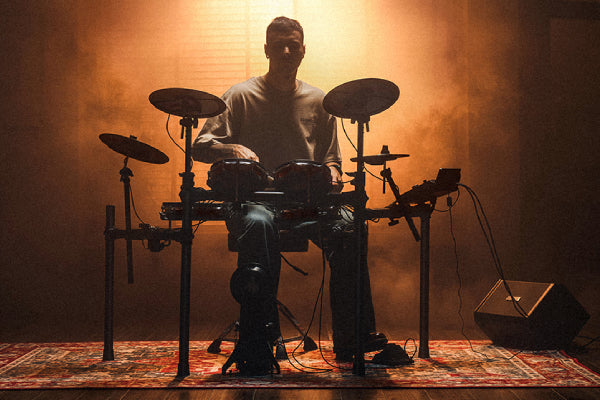



Leave a comment
All comments are moderated before being published.
This site is protected by hCaptcha and the hCaptcha Privacy Policy and Terms of Service apply.